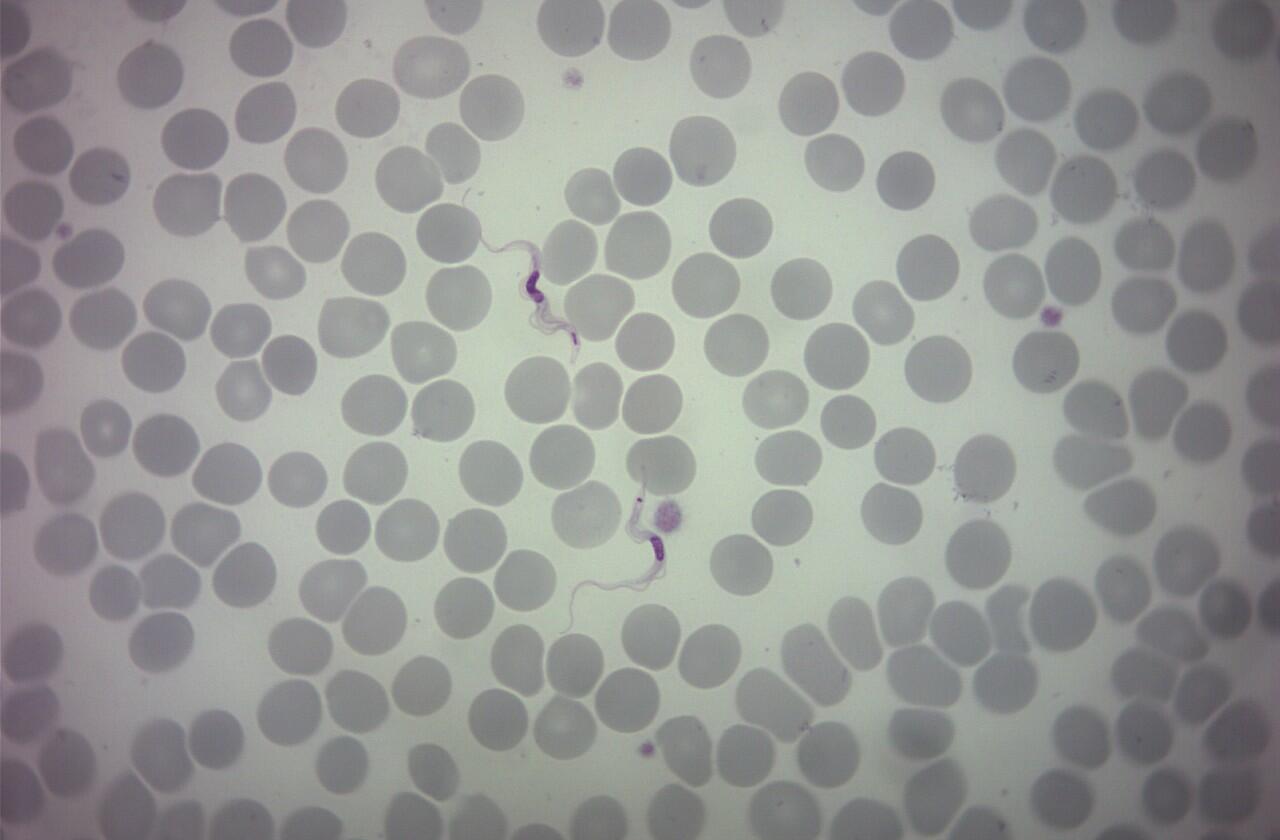
A retired GP has made a generous donation to Liverpool School of Tropical Medicine – a decade after its clinicians helped to save her life.
Dr Jane Rimington contracted trypanosomiasis – commonly known as ‘sleeping sickness’ – while travelling across Zambia in 2010, and was airlifted to Liverpool for urgent medical care when she arrived back in the UK.
She initially feared that her fever, rigors, vomiting and weakness were symptoms of malaria, as her own medical books said the usual sleeping sickness incubation period would have predated her travel to Zambia, and she could not find any unusual wounds or scabs consistent with a tsetse bite.
However, doctors at the Tropical and Infectious Diseases Unit at Royal Liverpool Hospitals quickly identified that Dr Rimington in fact had sleeping sickness. She spent three weeks there, including a week in intensive care, as she battled the parasitic infection that is fatal if untreated.
“I am in no doubt they saved my life,” Dr Rimington said.
Thankfully, Dr Rimington made a full recovery and returned to work at a rural GP surgery in Cumbria. After retiring and getting married in 2018, she and her husband made wills, and she made provision for a gift to be left to LSTM.
“I felt I needed to ensure that the LSTM would get my support, as they had supported me,” she said.
“Without the expertise, care, and attention they and the staff at the Royal Liverpool University Hospital gave me during my illness, not to mention all the research, knowledge and experience gained over many years before, I would not have been able to continue my career, meet my husband, and enjoy my life as I do now.”
Dr Rimington has now decided to bring forward her hugely generous donation, committing funds towards LSTM’s vital work while she enjoys a happy and well-earned retirement.
“I was considering my priorities financially, and it occurred to me that as I retired, I was in a fortunate position to be able make my gift sooner rather later.
“I believe that the amount I chose to gift would be “worth” more now that in 20 years time, and I may be able to see what impact my gift made during my lifetime. What a privilege!”
Trypanosomiasis
Dr Rimington’s donation will help LSTM continue its efforts to diagnose, treat and eradicate tropical diseases such as sleeping sickness.
Trypanosomiasis is caused by a parasite transmitted by tsetse flies, largely in remote areas of central and west Africa. Most people infected lack access to healthcare that can correctly diagnose and treat the disease with the drugs required to help recovery.
The most effective way to protect people from sleeping sickness is by controlling the tsetse population. Researchers at Liverpool School of Tropical Medicine have been updating control methods, making them more affordable and effective, working with teams on the ground in those places most affected. This includes the development of Tiny Targets, which have allowed a number of affected regions to move towards eliminating Human African Trypanosomiasis as a public health concern.
Dr Rimington said: “My reason for choosing LSTM as the recipient of my donation was obviously very personal, having been lucky enough to benefit from all the expertise and research into the disease I contracted which went before.
“However, I was excited to see that one of the priority areas for LSTM is the treatment and prevention of trypanosomiasis in Africa and South America.
“I have no doubt in my mind that if I had been Zambian and unable to access treatment before the parasites crossed my blood-brain barrier, I would not be alive today, and millions of people live with this fear on a daily basis. I witnessed myself the absolute failure of tsetse fly eradication programmes in Zambia in 2010, and I feel very proud to be a supporter of the important work LSTM is doing in this field and others.”
Dr Rimington has urged others to think about donating a gift to LSTM, enabling others to benefit from life-saving treatment.
“No matter how large or small, a gift in your will or during your lifetime, LSTM will use that gift wisely. You might think the focus is on treating diseases you have not heard of and will never get, but in this age of global travel, you just might.
“And I was the lucky one - imagine living with the possibility of contracting malaria, or trypanosomiasis, or schistosomiasis, every day. The list goes on and the impact on individuals, families and communities can be devastating. Your gift will not be wasted.”
This week marks Remember a Charity Week, a unique opportunity for all of us to reflect on our legacy. After taking care of your loved ones, consider leaving a gift to charity in your will.
To discover how you can leave a meaningful legacy with LSTM, click here. Your generosity can help shape a brighter future for generations to come.